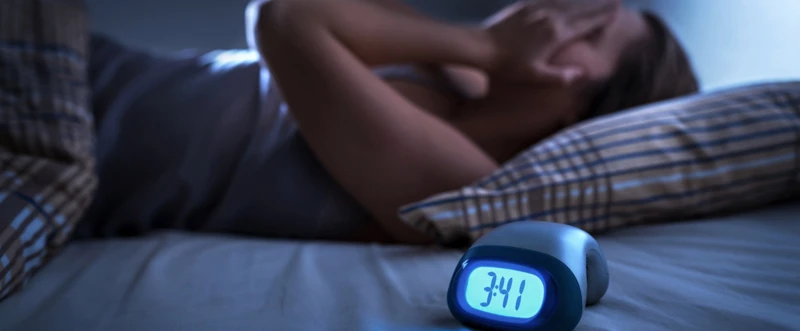Have you found yourself tossing and turning at night, struggling to fall asleep or stay asleep? Do you often wake up feeling tired and irritable, unable to concentrate during the day? You may be suffering from chronic insomnia, a disorder that affects millions of people worldwide. Chronic insomnia can have a significant impact on your quality of life, affecting everything from your work performance to your personal relationships. The good news is, there is help available. Seeking professional help for chronic insomnia can make all the difference in improving your sleep habits and overall wellbeing. Let’s delve deeper into what chronic insomnia is, its causes and symptoms, the risks of ignoring it, and why seeking professional help is so crucial.
What is Chronic Insomnia?
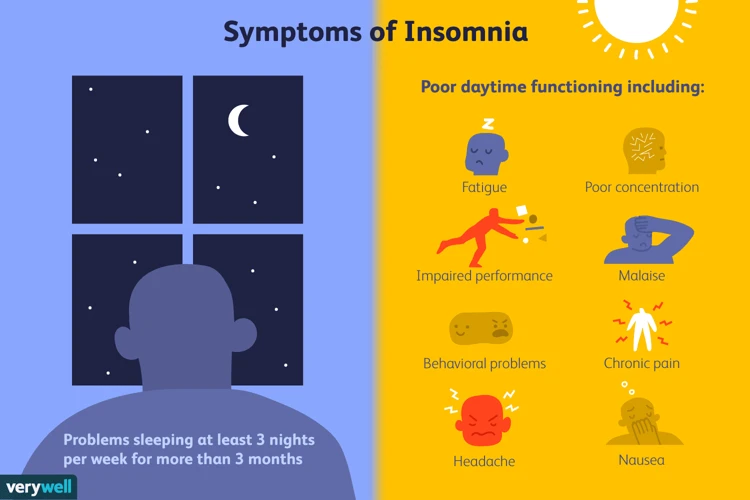
Chronic Insomnia is a common sleep disorder that affects a large number of people, up to 30% in some populations. It is characterized by difficulty falling or staying asleep, as well as waking up too early or feeling unrefreshed after sleeping. Chronic insomnia is considered a long-term condition that can have a serious impact on a person’s health and quality of life.
Chronic insomnia is defined as difficulty sleeping for at least three nights a week for three months or longer. It goes beyond the occasional sleepless night and can be a persistent problem for those who suffer from it. It can also be classified as primary, where insomnia is the main issue, or secondary, where it is a symptom of another underlying condition such as depression, anxiety or chronic pain.
The symptoms of chronic insomnia can vary from person to person but typically include difficulty falling asleep, waking up frequently during the night or early in the morning, feeling tired during the day or experiencing decreased energy, irritability or mood disturbances, and difficulty concentrating or staying focused. These symptoms can have a significant impact on a person’s quality of life, both personally and professionally.
Chronic insomnia can be caused by a variety of factors, including medical conditions such as sleep apnea, restless leg syndrome or chronic pain. It can also be caused by lifestyle factors such as stress, anxiety, an unhealthy diet or lack of physical activity. Environmental factors such as excessive noise, light or temperature changes can also play a role in chronic insomnia. Certain medications or substances like caffeine or alcohol can also disrupt sleep patterns and lead to chronic insomnia.
Defining Chronic Insomnia
When it comes to sleep, we all experience occasional nights of restlessness or difficulty in falling asleep. However, for some individuals, the struggle to achieve quality sleep is an ongoing battle. This condition is known as chronic insomnia, which is characterized by difficulty in falling asleep, waking up frequently during the night, and having trouble falling back to sleep. It is a common sleep disorder that affects millions of people worldwide and has a significant impact on their health and daily functioning. Let’s explore the defining aspects of chronic insomnia further in detail.
Symptoms of Chronic Insomnia
Chronic insomnia is a condition that can severely impact an individual’s daily life, causing a wide range of physical and mental health issues. Some common symptoms of chronic insomnia include:
| Symptoms | Description |
|---|---|
| Difficulty falling asleep | Individuals with chronic insomnia may find it difficult to fall asleep, even when they feel tired. |
| Difficulty staying asleep | Those with chronic insomnia may wake up frequently during the night and have trouble getting back to sleep. |
| Waking up too early | Individuals with chronic insomnia may wake up earlier than desired and have trouble getting back to sleep. |
| Daytime fatigue | Chronic insomnia can leave individuals feeling tired and fatigued during the day, which can affect their ability to concentrate and complete daily tasks. |
| Difficulty concentrating | Those with chronic insomnia may find it difficult to concentrate during the day, which can impact their ability to work or perform daily activities. |
| Irritability or mood disturbances | Chronic insomnia can lead to irritability and mood disturbances, which can affect personal and professional relationships and lead to a decreased quality of life. |
| Physical symptoms | Chronic insomnia can also cause physical symptoms such as headaches, stomach problems, and muscle aches and pains. |
If you are experiencing any of these symptoms on a regular basis, it is important to seek professional help to address the underlying causes of your insomnia and improve your overall health and well-being.
Causes of Chronic Insomnia
Chronic insomnia can be caused by a wide range of factors. While some of these factors may be easy to identify and address, others may require professional intervention. Here are some of the most common causes of chronic insomnia:
| Cause | Description |
|---|---|
| Stress and Anxiety | Emotional and mental stress can make it difficult to fall and stay asleep. |
| Medical Conditions | Certain health conditions such as chronic pain, asthma, and allergies can make it difficult to sleep. |
| Medications | Some medications may interfere with the ability to fall and stay asleep, such as antidepressants and blood pressure medications. |
| Substance Abuse | The use of alcohol, caffeine, and nicotine can all interfere with sleep patterns. |
| Environmental Factors | Noise, light, and temperature changes can all affect the quality of sleep. |
| Shift Work or Jet Lag | Disruptions to the regular sleep-wake cycle can lead to chronic insomnia. |
| Genetics | Sleep disorders can be hereditary, making people more susceptible to chronic insomnia. |
Identifying the cause of chronic insomnia can be the first step towards finding the right treatment. Talking to a healthcare professional can help individuals address any underlying health conditions or lifestyle factors that may be contributing to their insomnia.
The Risks of Ignoring Chronic Insomnia
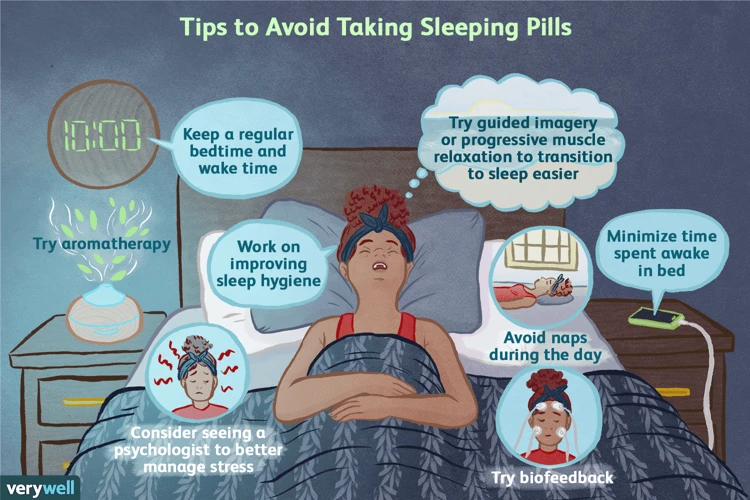
Chronic insomnia is a serious condition that can have significant long-term effects on both physical and mental health. Ignoring this condition can lead to a number of risks that should not be overlooked.
Physical Risks of Chronic Insomnia: Prolonged periods of insufficient sleep can greatly increase the risk of developing serious health problems such as high blood pressure, heart disease, and diabetes. People with chronic insomnia may also experience more accidents, as lack of sleep affects decision-making and motor function. Chronic insomnia can compromise the immune system, affecting the body’s ability to fight off infections.
Mental Health Risks of Chronic Insomnia: Chronic insomnia can have a negative impact on mental health, leading to increased anxiety, depression, and irritability. Insufficient sleep can make it difficult to concentrate and affects cognitive function, which can have consequences for work, relationships, and overall quality of life. People with chronic insomnia often suffer from mood swings, decreased motivation, and may experience memory problems.
It is essential to acknowledge the risks of ignoring chronic insomnia, as failing to address the condition can lead to numerous health problems that can drastically affect people’s quality of life. It is never too late to seek help and make changes in order to improve sleep behaviors and overall well-being.
Physical Risks of Chronic Insomnia
Insomnia is a common sleep disorder that affects millions of people worldwide. While it may seem like a minor issue, chronic insomnia can have severe physical consequences. Getting inadequate sleep on a regular basis can impact many systems in the body, including the cardiovascular, respiratory, and immune systems. The lack of sleep can affect a person’s energy levels, mood, and overall quality of life. In this section, we will explore the health risks associated with chronic insomnia and why seeking professional help is essential for managing this condition.
Mental Health Risks of Chronic Insomnia
Chronic insomnia not only affects physical health but also has a significant impact on mental health.
| Mental Health Risks of Chronic Insomnia |
|---|
Insomnia can cause a number of mental health issues including:
|
Failure to address these mental health risks of chronic insomnia can lead to a downward spiral of worsening physical and mental health. Seeking professional help is essential to alleviate mental health suffering and prevent further complications.
Chronic Insomnia: The Impact on Daily Life
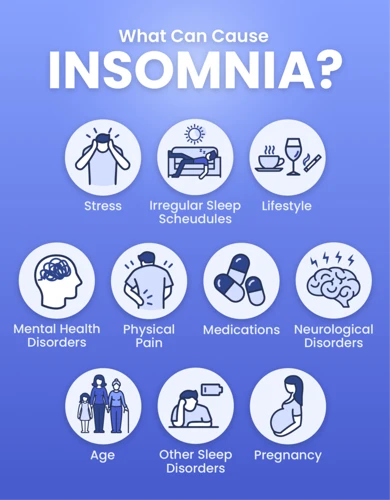
Insomnia is a persistent sleep disorder that affects people of all ages. Its effects can extend beyond simply feeling tired in the morning. Chronic insomnia, in particular, can have a profound impact on a person’s daily life.
The Effects on Professional Life
If you are dealing with chronic insomnia, you may find it difficult to stay focused during work hours. You may struggle to finish tasks on time or make decisions that require concentration. This can lead to mistakes, missed deadlines, and a decrease in productivity. Chronic insomnia can also affect your relationships with colleagues, making it harder to communicate effectively or work collaboratively.
The Effects on Personal Life
Insomnia can make it challenging to engage in social and recreational activities. You may feel too fatigued or anxious to enjoy hobbies or spend time with friends and family. Chronic insomnia can also lead to irritability, mood swings, and an overall decline in mental health. In severe cases, it can even strain your relationships with loved ones and impact your quality of life.
It is important to recognize the effects of chronic insomnia on your daily life and seek appropriate treatment to mitigate this impact.
The Effects on Professional Life
Chronic insomnia can severely impact an individual’s professional life, affecting their ability to concentrate and perform tasks efficiently. The constant fatigue and exhaustion may lead to absenteeism, decreased productivity, and an increased risk of workplace accidents. Additionally, individuals with chronic insomnia may struggle to meet work demands and deadlines, leading to job loss or demotion. The effects on professional life cannot be ignored and may require seeking professional help to manage and overcome.
The Effects on Personal Life
Chronic insomnia can also have a stark impact on an individual’s personal life. It can cause fatigue, irritability, mood swings, and difficulty concentrating throughout the day. The lack of restorative sleep can lead to decreased libido and sexual dysfunction, further affecting personal relationships.
Chronic insomnia can also interfere with social activities, forcing individuals to cancel plans or limit their participation due to exhaustion. They may also become isolated and lonely as a result of their inability to maintain regular sleep patterns or social commitments.
In some cases, chronic insomnia may also worsen symptoms of pre-existing mental health conditions, such as anxiety and depression. These individuals may find it even more challenging to cope with their emotions and stay motivated, leading to a vicious cycle that perpetuates both the insomnia and mental health issues.
The disruptive effects of chronic insomnia on personal life can be wide-ranging and severe. It is essential to seek professional help and take effective steps to manage the condition to prevent further deterioration of one’s personal relationships, mental health, and overall quality of life.
| Effects on Personal Life | Symptoms |
|---|---|
| Decreased libido and sexual dysfunction | Loss of interest in sexual activity, difficulty maintaining an erection or achieving orgasm |
| Interfere with social activities | Limited participation, isolation, loneliness |
| Worsening of pre-existing mental health condition | Increased anxiety, depression leading to a vicious cycle of mental health issues and insomnia |
The Importance of Seeking Professional Help

Dealing with chronic insomnia on your own can be a frustrating and overwhelming experience. While many people may try to self-treat their insomnia with various remedies, this may not always provide satisfactory results. In such cases, seeking professional help becomes a crucial step towards finding lasting relief from insomnia.
Professional help is essential when it comes to chronic insomnia because:
1. It provides accurate diagnosis: Professional sleep experts can accurately diagnose the underlying cause of insomnia, which is often essential for adequate treatment. Insomnia can have various causes, such as sleep apnea, anxiety, depression, or substance abuse, among others. Without proper diagnosis and treatment, the symptoms of insomnia may persist, and other health issues may arise, which can further worsen the condition.
2. It offers effective treatment: Professional help for insomnia can provide long-lasting relief and improve the quality of sleep. Medical professionals can recommend medications, therapy or lifestyle changes, depending on the cause and severity of insomnia. This can help patients better manage their condition and, in some cases, lead to complete remission of the symptoms.
3. It improves overall health: Chronic insomnia can have a significant impact on mental and physical health, affecting the immune system, cognitive performance, and overall quality of life. Seeking professional help can lead to improved sleep patterns, which can help restore balance to these critical areas.
4. It provides emotional support: Insomnia can be isolating and stressful, leading to feelings of frustration, anxiety or depression. Professional care for chronic insomnia can provide emotional support as well as helpful resources, enabling patients to cope better and feel less alone in the struggle against insomnia.
There are various types of professional help available for chronic insomnia, including sleep specialists, psychiatrists, cognitive-behavioral therapists, and sleep clinics. Each of these professionals can offer different levels of care and support that best suit individual needs.
Chronic insomnia is a condition that can severely impact an individual’s daily life, physical and mental health if left untreated. Seeking professional help is crucial to tackle the underlying causes and symptoms of insomnia effectively, leading to better sleep patterns and improved quality of life.
Why Professional Help is Crucial
While some may believe that they can manage chronic insomnia on their own, seeking professional help is crucial for effectively treating the condition. Chronic insomnia can have severe consequences on both physical and mental health, as well as personal and professional life. Relying on the guidance and expertise of trained professionals can make all the difference in managing the symptoms and improving overall quality of life. So, let’s dive into why seeking professional help is the best course of action for those struggling with chronic insomnia.
Types of Professional Help Available
There are several types of professional help available for individuals suffering from chronic insomnia. Each type of treatment targets specific underlying causes of the condition, and what works for one individual might not work for another. It’s essential to understand the options available and determine which is best suited to your needs and circumstances. Here are some of the types of professional help available for chronic insomnia:
| Treatment type | Description |
|---|---|
| Cognitive Behavioral Therapy (CBT) | CBT involves working with a therapist to identify negative thought patterns and behaviors that contribute to insomnia. The goal is to replace these habits with healthier ones and promote positive sleep patterns. |
| Medications | Prescription sleep aids can be an effective way to manage insomnia in the short term. However, long-term use of medications can lead to addiction, and over time they can be less effective. |
| Natural Remedies | Some individuals may prefer natural remedies for chronic insomnia, which include herbal supplements, aromatherapy, and relaxation techniques. While some natural remedies can be effective, it’s essential to consult with a healthcare professional before using any alternative treatments. |
| Sleep Studies | In some cases, a sleep study may be necessary to diagnose a sleep disorder that is causing chronic insomnia. The study involves a series of tests to monitor sleep patterns and identify any underlying health issues. |
Regardless of the type of professional help you choose, it’s essential to stay committed to the treatment plan and maintain healthy sleep habits to manage chronic insomnia effectively. Seeking professional help is the first step toward achieving restful sleep and improving your overall quality of life.
What to Expect During Treatment
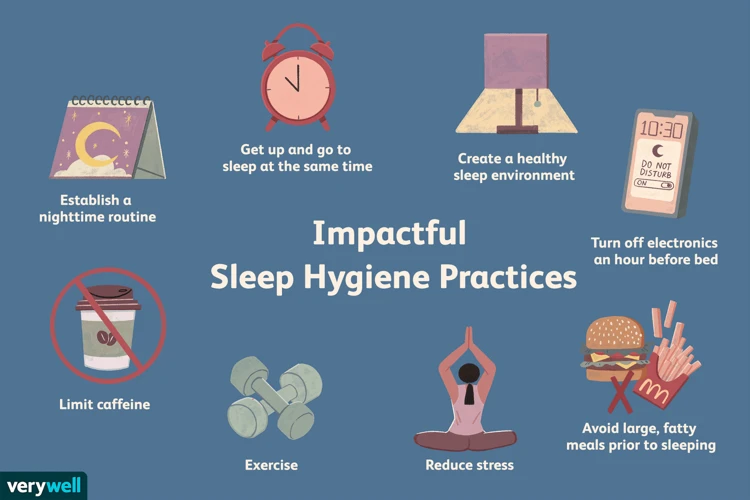
When seeking professional help for chronic insomnia, it is important to have an understanding of what to expect during treatment. The initial consultation with a healthcare professional will likely involve a thorough assessment of the patient’s sleep history, including the duration and severity of the insomnia, any underlying medical conditions or medications that may be affecting sleep, and any lifestyle factors that may be contributing to the problem.
Diagnosis and treatment plan will be developed based on the information collected during the initial consultation. Treatment options may include medication, therapy, or a combination of both. It is important to note that the most effective treatment will vary from person to person, and what works for one individual may not work for another. It may take some trial and error to find the best treatment plan.
Long-term care is another important aspect of treatment. Chronic insomnia is a condition that requires ongoing management, and working with a healthcare professional to develop a long-term care plan can help to ensure that the patient is able to manage the condition effectively over time. This may involve regular follow-up appointments, adjustments to the treatment plan as needed, and ongoing support to help the patient maintain healthy sleep habits.
It is important to remember that seeking professional help for chronic insomnia is not a one-size-fits-all approach. Treatment will depend on the individual needs of the patient, and it may take some time and experimentation to find the right approach. However, with the guidance of a healthcare professional, it is possible to effectively manage chronic insomnia and improve overall health and wellbeing.
Initial Consultation
One of the first steps in seeking professional help for chronic insomnia is the initial consultation. This is a critical phase in the treatment process where the patient meets with a healthcare professional to discuss their sleeping patterns, medical history, and other relevant information. During this consultation, the healthcare professional will attempt to diagnose the root causes of the insomnia and create a personalized treatment plan to help the patient achieve better quality sleep. Let’s take a closer look at what to expect during this crucial first step in treating chronic insomnia.
Diagnosis and Treatment Plan
After the initial consultation, the healthcare provider will use various tools to diagnose chronic insomnia and create a personalized treatment plan. This may include:
| Diagnostic Tools | Description |
|---|---|
| Medical history and physical exam | These help the healthcare provider evaluate your overall health and identify any underlying medical conditions that may be contributing to insomnia. |
| Sleep diary | A sleep diary is a record of your sleep patterns, which can help the healthcare provider identify patterns and potential triggers for insomnia. |
| Sleep studies | A sleep study is an overnight test that monitors your brain waves, heart rate, breathing, and more to evaluate your sleep quality and identify any underlying sleep disorders. |
Once chronic insomnia is diagnosed, the healthcare provider will work with the patient to create a personalized treatment plan. This plan may include a combination of medications, therapy, and lifestyle changes.
Medications for chronic insomnia may include over-the-counter or prescription sleep aids, such as hypnotics, antidepressants, or anti-anxiety medications. However, it’s important to note that prescription sleep aids can be habit-forming and have side effects, so they should only be used under the guidance of a healthcare provider.
Therapy for chronic insomnia may include cognitive-behavioral therapy (CBT), which is a type of talk therapy that helps patients recognize and change negative thoughts and behaviors that contribute to insomnia. CBT may be done individually or as part of a group.
Lifestyle changes for chronic insomnia may include improving sleep hygiene, such as avoiding caffeine and electronics before bed, establishing a regular sleep schedule, and creating a comfortable sleep environment.
The diagnosis and treatment plan for chronic insomnia will vary depending on the individual and their specific needs. It’s important to work closely with a healthcare provider to find the best treatment approach for long-term relief of chronic insomnia symptoms.
Long-Term Care
Long-term care for chronic insomnia is an essential part of treatment that involves ongoing support and monitoring to ensure that the patient is making progress and getting the necessary help required. This stage of treatment involves working closely with a professional and following the treatment plan until the symptoms of insomnia improve.
During the long-term care stage, the patient will have regular check-ins with their healthcare provider, where the progress made will be evaluated. The healthcare provider may adjust the treatment plan to ensure that the patient is responding well to the treatment. Typically, long-term care for chronic insomnia consists of a combination of behavioral changes, medication, and therapies, depending on the individual case.
| Behavioral Changes | Medication | Therapy |
|---|---|---|
| Consistent sleep routine: Going to bed and waking up at the same time every day. | Sedative-Hypnotics: These medications reduce the time it takes to fall asleep, wake you up less often during the night, and generally improve your overall sleep quality. | Cognitive Behavioral Therapy: A psychotherapeutic approach that aims to change negative thought patterns and behaviors surrounding sleep. |
| Avoiding caffeine: Especially before bedtime as it can interfere with sleep and increase insomnia symptoms. | Antidepressants: Antidepressant medications are often used to treat chronic insomnia when depression is a contributing factor. | Light Therapy: This therapy involves exposure to bright light, which is constantly adjusted and monitored to help regulate the natural circadian rhythm. |
| Avoiding alcohol: Alcohol can make it hard to fall asleep, and once its effects wear off, it can cause you to wake up in the middle of the night and have difficulty falling back asleep. | Antianxiety drugs: Antianxiety medications are sometimes prescribed to help calm the patient and reduce their anxiety, subsequently helping them sleep better. | Progressive Muscle Relaxation: This therapy involves tensing and then relaxing muscles in different parts of the body, which can calm the body and promote relaxation. |
Long-term care for chronic insomnia is essential for ensuring that the patient is getting the necessary support and treatment. While it may take some time, the combination of behavioral changes, medication, and therapy can significantly improve the symptoms associated with insomnia, ultimately leading to better overall health outcomes.
Lifestyle Changes for Managing Chronic Insomnia
There are several lifestyle changes that can help manage chronic insomnia. It’s important to note that these changes may not cure insomnia, but they can aid in better sleep and reduce the overall severity of symptoms. It’s also important to discuss any lifestyle changes with a healthcare professional before implementing them.
Healthy Sleep Habits: Establishing and maintaining healthy sleep habits can be a major factor in managing insomnia. Some tips for healthy sleep habits include:
– Establishing a consistent sleep schedule: Going to bed and waking up at the same time every day can help regulate the body’s internal clock.
– Creating a relaxing bedtime routine: This can include reading a book or taking a warm bath to help the body unwind before bed.
– Reducing screen time before bedtime: The blue light emitted from electronic devices can suppress the production of melatonin, which can delay sleep onset.
– Creating a sleep-conducive environment: The bedroom should be dark, quiet, and kept at a cool temperature.
– Avoiding caffeine and alcohol before bedtime: Both substances can disrupt sleep and cause awakenings throughout the night.
Natural Remedies for Insomnia: There are several natural remedies that can help manage insomnia, however, it’s important to note that not all remedies are safe, and some may interact with prescription medications. It’s important to discuss any natural remedies with a healthcare professional before trying them. Some natural remedies include:
– Valerian root: Research has shown that valerian root can aid in sleep and reduce the amount of time it takes to fall asleep.
– Chamomile tea: Drinking chamomile tea before bedtime can promote relaxation and reduce anxiety.
– Lavender: Studies have shown that the scent of lavender can promote relaxation and improve the overall quality of sleep.
Managing chronic insomnia requires a multifaceted approach that involves lifestyle changes and, in some cases, professional help. Implementing healthy sleep habits and discussing natural remedies with a healthcare professional can be helpful tools in managing insomnia.
Healthy Sleep Habits
Getting a good night’s sleep is essential for our overall health and wellbeing. For individuals struggling with chronic insomnia, achieving a restful sleep pattern can be a challenge. However, making changes to daily routines and creating healthy sleep habits can significantly improve sleep quality and quantity. By incorporating simple lifestyle modifications into daily routines, individuals can create an environment conducive to restful sleep. In the following section, we’ll explore some ways to establish healthy sleep habits to help manage chronic insomnia.
Natural Remedies for Insomnia
An alternative to traditional medication for managing chronic insomnia is natural remedies. While these remedies may not work for everyone, some people find relief through these methods. Here are a few natural remedies to consider:
| Remedy | Description |
|---|---|
| Valerian Root | Valerian root is an herb that has been used for centuries as a sleep aid. It can be taken in pill form or as a tea. |
| Magnesium | Magnesium deficiency has been linked to insomnia. Taking a magnesium supplement or increasing magnesium-rich foods in your diet, such as nuts and leafy greens, may help improve sleep. |
| Chamomile | Chamomile is an herb that can be taken as a tea to help promote relaxation and improve sleep. |
| Lavender | Lavender is an herb that has been shown to have a calming effect on the body. Using lavender essential oil in a diffuser or as a pillow spray may help improve sleep. |
| Passionflower | Passionflower is an herb that has been used for centuries as a natural sleep aid. It can be taken in pill form or as a tea. |
It’s important to note that natural remedies should be used with caution and under the guidance of a healthcare professional. Some natural remedies can interact with medications, and they may not be safe for people with certain medical conditions. Additionally, while natural remedies may be helpful for some people, they may not be effective for everyone. It’s important to speak with a healthcare professional about the best course of treatment for your specific case of chronic insomnia.
Conclusion
In conclusion, chronic insomnia is a serious condition that can have significant physical and mental health risks if left untreated. It can also impact our daily life, both professionally and personally. Therefore, seeking professional help is crucial in managing and treating chronic insomnia.
Professional help can provide a diagnosis and a personalized treatment plan tailored to individual needs. There are various types of professional help available, including sleep specialists, psychologists, and doctors. Through treatment, individuals can learn lifestyle changes, such as healthy sleep habits and natural remedies, that can aid in managing chronic insomnia in the long term.
Ignoring chronic insomnia can lead to risks to physical and mental health, impaired performance at work, and strained personal relationships. By addressing the issue with professional help, individuals can regain control over their sleep patterns and daily life.
It is important to understand that chronic insomnia is a treatable condition, and seeking professional help is the first step in managing and improving the quality of life affected by it. Don’t hesitate to speak with a healthcare professional if you are experiencing difficulty sleeping as it can significantly improve your overall well-being.
Frequently Asked Questions
What is the difference between acute and chronic insomnia?
Acute insomnia is short-term and usually lasts for a few days or weeks. Chronic insomnia, on the other hand, lasts for months or even years.
Can chronic insomnia be caused by medical conditions?
Yes, chronic insomnia can be caused by medical conditions such as sleep apnea, restless leg syndrome, and chronic pain.
Can chronic insomnia be treated without medication?
Yes, lifestyle changes such as practicing good sleep hygiene and natural remedies for insomnia can help manage chronic insomnia without medication.
What are some common medications used to treat chronic insomnia?
Common medications for chronic insomnia include benzodiazepines, non-benzodiazepine sedatives, and melatonin agonists.
What are the potential risks of taking medication for chronic insomnia?
Potential risks of taking medication for chronic insomnia include dependence, tolerance, and side effects such as dizziness, nausea, and headaches.
Can therapy be beneficial for chronic insomnia?
Yes, therapy such as cognitive-behavioral therapy (CBT) can be beneficial for chronic insomnia as it addresses the underlying psychological factors contributing to insomnia.
What is sleep hygiene?
Sleep hygiene refers to practices and habits that promote quality sleep, such as maintaining a regular sleep schedule, avoiding caffeine before bedtime, and creating a comfortable sleeping environment.
Can natural remedies for insomnia be effective?
Yes, natural remedies such as herbal supplements, relaxation techniques, and aromatherapy can be effective for managing chronic insomnia.
What should I expect during a sleep study?
During a sleep study, electrodes will be attached to your scalp, face, and legs to monitor brain activity, muscle activity, and breathing patterns while you sleep. You will also be monitored via video and audio recordings.
Is it possible to overcome chronic insomnia?
Yes, chronic insomnia can be overcome with the help of professional treatment, lifestyle changes, and/or natural remedies. It may take time and effort, but it is possible to improve sleep quality and overcome chronic insomnia.

